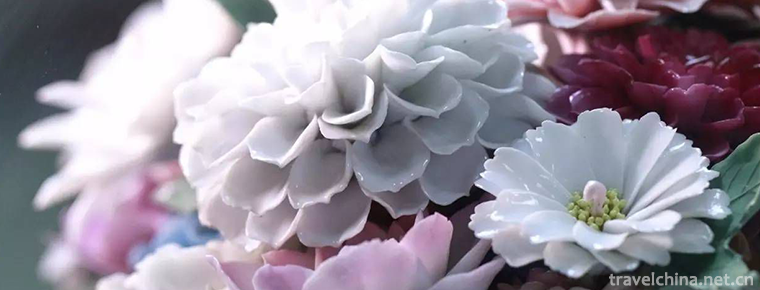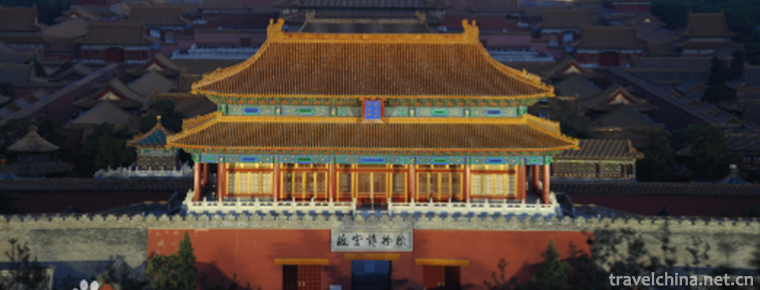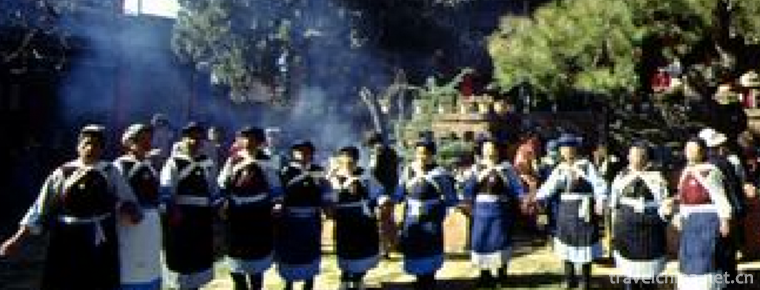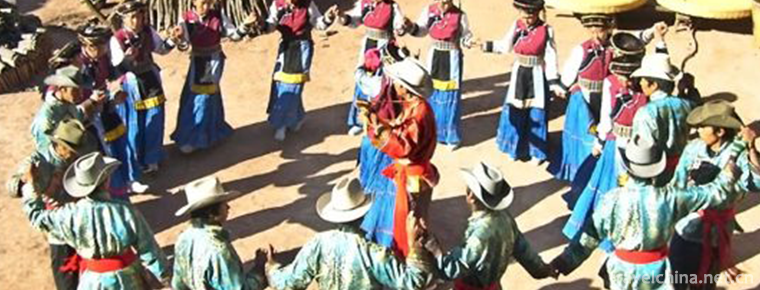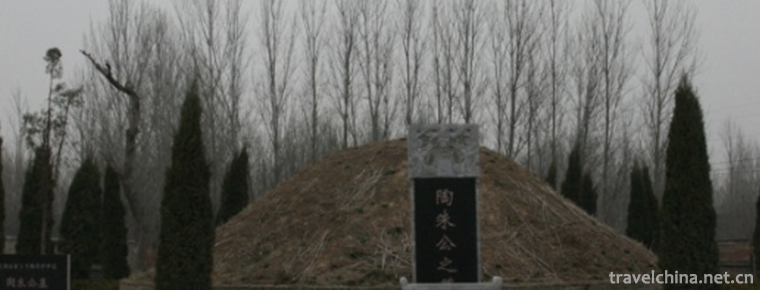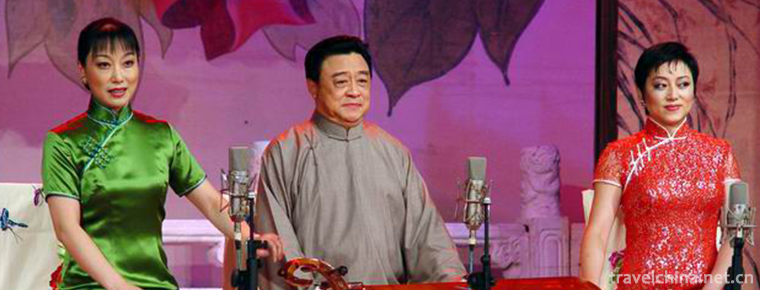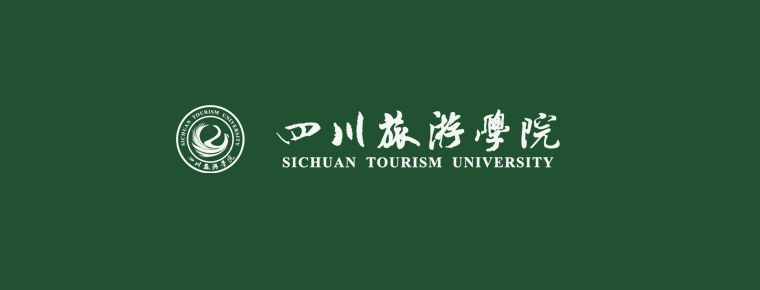Legend of the ancestors of Khitan
Legend of the ancestors of Khitan
The legend of the ancestors of Qidan is a folk legend that is spread in Pingquan County, Hebei Province, China. According to legend, the ancestors of Qidan were born on the Futu River in Mayushan, Pingquan County by "gods and men riding on white horses" and formed "eight parts of Qidan". The legend has a long history and great influence in Pingquan County. This is the origin of the funeral custom of local men pasting white horses and women pasting green cattle in later generations.
On May 23, 2011, the legend of Qidan's ancestors was approved by the State Council to be included in the third batch of national intangible cultural heritage list.
Historical Origin
Qidan is an ancient nation in China. It was founded in Liao Dynasty (916-1125). At the latest in the early years of the Northern Wei Dynasty, the name of Qidan was recorded in the literature. The earliest biography of Qidan was Wei Shu, which said: "The kingdom of Qidan, in Kumoxidong, is a heterogeneous kingdom, all fleeing between the Songmo desert. In the process of landing, the army broke down and fled, sharing with Cuomo. After decades of growth, there are tribes, hundreds of miles north of Helong, mostly bandits. According to the biography of Wei Shu Kumoxi, the story of Xie and Qidan in the Northern Wei Dynasty was first published in Tuoba, Taizu, for three years (388). At that time, the so-called Khitan State was only a statement of different tribes or regions recorded in historical records, and it did not really establish a strict state system. The founding of Khitan was seen more than 500 years later in historical records, that is, in 916 AD, Jerusalem Abaoji.“
The Supreme Honour calls it the Great Saint Tomorrow Emperor, and later the Empress of the Daming Earth, the Amnesty, the Founding of the Sovereign Book. It abolishes the electoral system of Khitan Khan, establishes the hereditary system of imperial power, and formally establishes an autocratic country.
The legend of Qidan's ancestors has a long history. "History of Liao Dynasty" Volume 37, Geographic Records 1, Zhi 7, there are records about it: "Legend has it that the goddess rides a white horse, from the Futu River east of Mayu Mountain, the goddess drives a green ox cart from Pinus tabulaeformis Panhuang River down to Muye Mountain, where two rivers merge, meet as a spouse and have eight sons, and the descendants are gradually divided into eight parts. Every March and sacrifice in the Spring and Autumn Period, the white horse and the green ox must be used to show that the original cloud is not forgotten. This is the origin of the earliest "eight tribes of Qidan". Their tribes worship the green cattle and white horses to show their ancestors'worship.
This legend has been spread orally in Pingquan County and its surrounding areas. The tombs of Dachang princess, Shiyang Shihu Liao ancient tombs, Dou Jingyong's tomb, Deputy envoy of Liao Privy Council, and legends about Liao Dynasty, especially the local unearthed relics of Liao Dynasty, such as Liao Sancai, Longfeng pattern gold and silver wares, can prove that the Qidan people really live and multiply in this land.
Pingquan County has a long history. Since ancient times, there has been a saying that "three provinces call chickens, Tongqu Liao Meng". In Liao Dynasty, it was called Shenshan County. Shenshan was the meaning of the mountain where God and man lived. From the records of Liao Shi and Chengde Fu Zhi, it can be fully confirmed that Mayushan (Guangtoushan, Liuxi Township) is indeed the birthplace of the ancestors of Qidan and the birthplace of the Qidan nationality. The funeral custom of pasting white horses for men and green cattle for women is still popular. With the passage of time, the man's death is still pasted white horse, and the woman's death has changed from pasted green cattle to pasted yellow cattle.
Ethnic background
The Qidan nationality is an ancient ethnic group in northern China, which has existed for more than 1,000 years. The Liao Dynasty established by Qidan lasted for nine emperors. In 209, it had a vast territory, equivalent to two Northern Song Dynasty. After the extinction of Liao Dynasty in the Jin Dynasty, Yelu Dashi led part of the Qidan people to travel west for ten thousand miles. Today, in Xinjiang and Central Asia, China has established the Western Liao Dynasty for more than ninety years. Liao (Northern Liao) and Western Liao together for more than 300 years.
Inheritance Significance
The legend of green cattle and white horse has a great influence in Pingquan. The funeral custom of the local men and women pasting white horse and green cattle came from this. Its main value includes the following four aspects:
Historical value: It proves from one side that the ancestors of Qidan were born and originated in Pingquan, which plays an irreplaceable role in the study of the origin of the Qidan nationality.
Cultural value: Through rescuing, excavating and protecting the legend, we can find out the situation of inheritance in different groups and enrich the local cultural connotation.
Academic value: "Qingniu Baima" may be a totem, through its research, we can further uncover the mystery of funeral customs and enrich the content of folklore knowledge.
Economic Value: The legendary site of the ancestors of Qidan is Mayushan, which is the seat of Liaoheyuan National Forest Park. Through this legend, promote the development of Pingquan tourism and increase economic income.

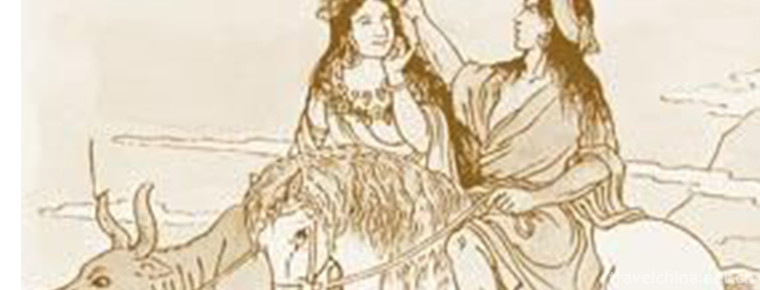
-
Chengdu JinJiang Hotel
Jinjiang Hotel is the first five-star hotel in southwest China. It is located in Renmin South Road, the main road of Chengdu City, adjacent to the famous Funan River and echoes Tianfu Square.
Views: 137 Time 2018-12-16 -
Danzhou tune
Danzhou tune is a traditional folk song which only spreads in Danzhou of Hainan Province and has a unique regional style. It is sung in Danzhou dialect with a lively rhythm.
Views: 117 Time 2019-04-25 -
Firing Techniques of Fengxi Porcelain
Fengxi Porcelain Firing Technology, a local traditional technology in Fengxi District, Chaozhou City, Guangdong Province, is one of the national intangible cultural heritage..
Views: 771 Time 2019-04-29 -
Construction Skills of Official Ancient Architecture
In the process of construction and maintenance of the Palace Museum ancient buildings, a complete set of traditional palace building construction techniques with strict shape has been formed on the ba.
Views: 296 Time 2019-05-01 -
Naxi Remei Biao
"Remei Biao" is also known as "Wo Yo Ye", which is a collective folk custom that has been spreading for thousands of years. There are more than ten people at least and hundreds of .
Views: 202 Time 2019-06-07 -
Pumi rubbing
Pumi nationality rubbing "rubbing consultation" is Pumi language, "rubbing" means dancing, "rubbing" means dancing, that is, dancing. When dancing, the leader strikes the.
Views: 307 Time 2019-06-09 -
Tao Zhugong Legend
Tao Zhugong's legend originated from Dingtao, Shandong Province, and is widely spread among Chinese people and Chinese businessmen in the world. It has a history of more than 2500 years. Tao Zhugong, .
Views: 140 Time 2019-06-18 -
Changsha Tanci
Changsha Tanci is a traditional opera in Hunan Province. It is popular in Changsha, Yiyang, Xiangtan, Zhuzhou and Liuyang of Hunan Xiangjiang River and Zishui River basin. Changsha Tanci derives from .
Views: 260 Time 2019-07-25 -
Sichuan Tourism University
Sichuan Tourism College is the first independent tourism undergraduate college in China. In 2018, it was approved by the Overseas Chinese Office of the State Council as the base of "Overseas Chin.
Views: 149 Time 2019-08-31 -
Liushi Manorial Museum
Dayi Liushi manoral museum is located at No.15, Jingui street, Anren Town, Dayi County, Chengdu City, Sichuan Province. It is one of the important historical sites and representative buildings in modern China..
Views: 186 Time 2020-11-05 -
Animal resources in Neijiang
The animal resources in Neijiang are mainly livestock, poultry and some wild animals. Domestic animals include mammals, birds, insects, fish and domestic wild animals. There are pigs, cattle, sheep, rabbits and a small number of horses, mules and donkeys.
Views: 316 Time 2020-12-16 -
Neijiang folk culture
Bull lantern dance is popular in Yuexi. One dressed as a shepherd boy and two dressed as cattle with cow shaped props. In the sound of gongs and drums, the shepherd boy first said doggerel to the audience to express the festival's congratulations, and then .
Views: 346 Time 2020-12-16


